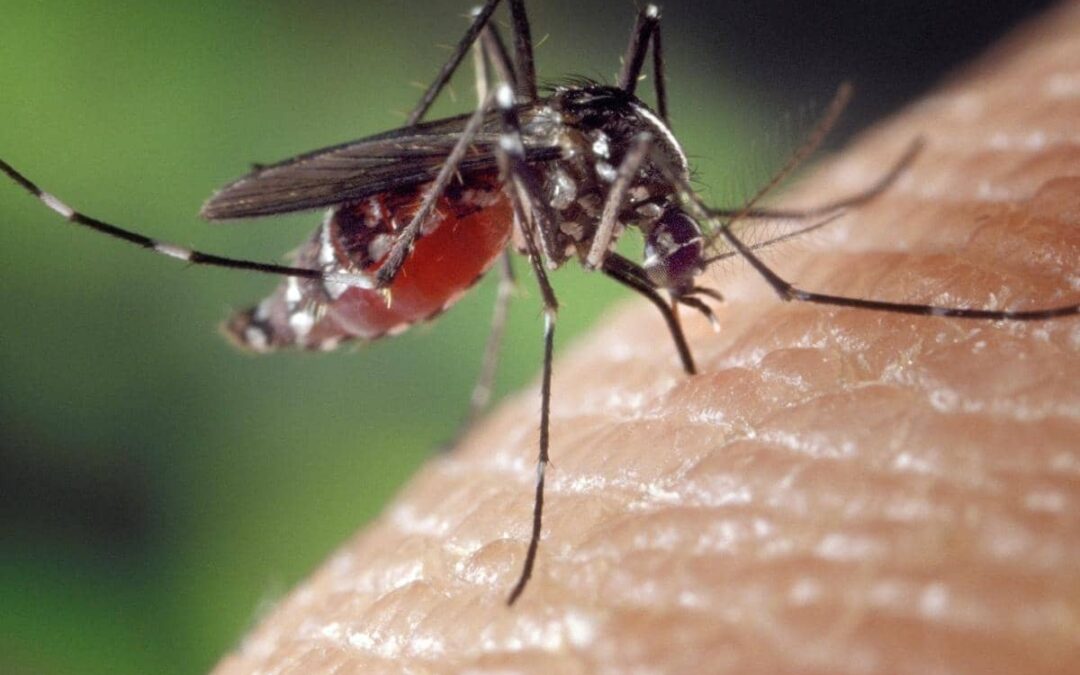Dr. Peter Hotez of the Baylor College of Medicine warns that rare mosquito-transmitted viruses, particularly sloth fever and eastern equine encephalitis, are “accelerating” and will soon be a “new normal” in the United States.
Human cases of eastern equine encephalitis, also known as triple-e, or EEE, have been confirmed in dozens of counties across five states: Vermont, New Hampshire, New Jersey, Massachusetts and Wisconsin.
EEE has also infected several animals nationwide, prompting health department officials in several states to urge livestock owners to vaccinate their animals.
And Dr. Anthony Fauci, the former top U.S. infectious disease expert, was recently hospitalized after he came down with West Nile virus, also transmitted by mosquito bites.
New Hampshire records first human EEE death in decade
In New Hampshire, a man died after contracting EEE; he was hospitalized Aug. 12 and died a week later, health officials said. This was the state’s first human case of the virus in a decade.
Massachusetts currently has the most widespread and elevated risk, with 10 communities designated as high or critical risk for EEE. One infected resident died, state health authorities said Tuesday.
To prevent further cases, some local officials recommend a sunrise-to-sunset curfew, when mosquitos are most active, while the Massachusetts Department of Public Health will spray for mosquitoes.
“Our recommendations are a layered prevention strategy. Make sure that you’re using mosquito repellant with EPA-registered active ingredient, anytime they’re outdoors. Use clothing to reduce exposed skin. And then this won’t help so much for EEE, but it helps for West Nile Virus, make sure you’re dumping standing water around your property,” said Dr. Catherine Brown, an epidemiologist with the Massachusetts Department of Public Health
There’s no vaccine or cure for EEE, and nearly a third of cases are fatal. Survivors often suffer from lifelong neurological issue
Sloth fever in the US
More than 20 people returning to the U.S. from Cuba have been infected with a virus transmitted by bugs in recent months, federal health officials said Tuesday. They all had Oropouche virus disease, also known as sloth fever.
None have died, and there is no evidence that it’s spreading in the United States. But officials are warning U.S. doctors to be on the lookout for the infection in travelers coming from Cuba and South America.
“It’s a hemisphere-wide problem,” Hotez said on “CUOMO.” “We’re seeing the thousands of cases of the sloth fever in Brazil. … West Nile Virus is on the rise. … We’re getting ready. This is going to be one of our new normals, unfortunately, in summer and early fall in the United States.”
Hotez said it’s important for people to take “personal protective measures.”
“Even though the weather is warm, I’m in full sweatpants. And I put on insect repellent that contains 40% DEET. … That’s important, as well as the county and the city doing appropriate mosquito-control interventions,” Hotez added.
Chris CUOMO andThe Associated Press contributed to this report.
Sloth Fever Symptoms most often include
- Fever
- Chills
- Headache
- Muscle Aches
- Pain Behind Eyes
- Nausea
- Vomiting
- Rash
- Sensitivity to Light
Eastern Equine Encephalitis Also called Eee virus Symptoms most often include
- Fever
- Headache
- vomiting
- Behavior Change Drowsiness

